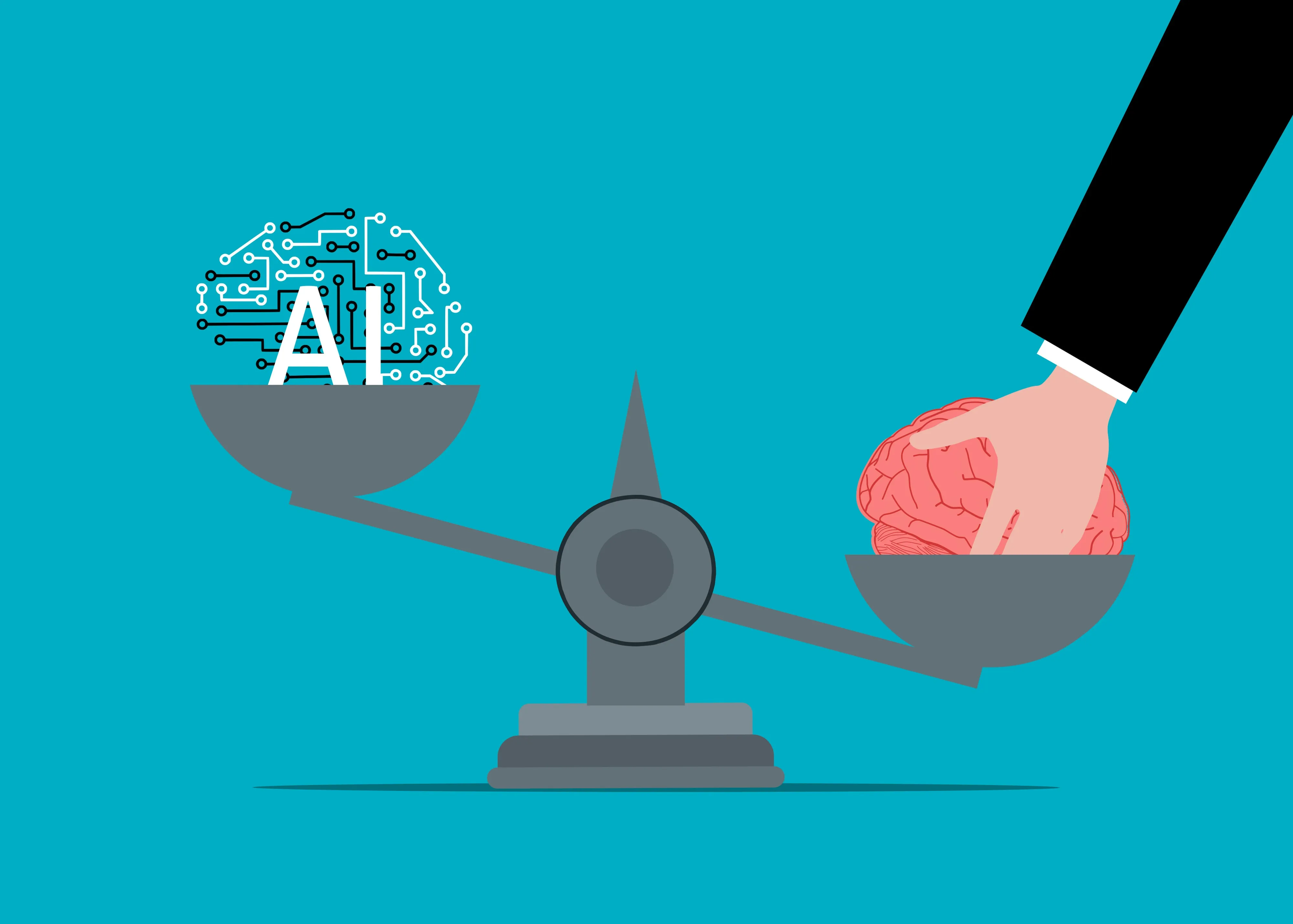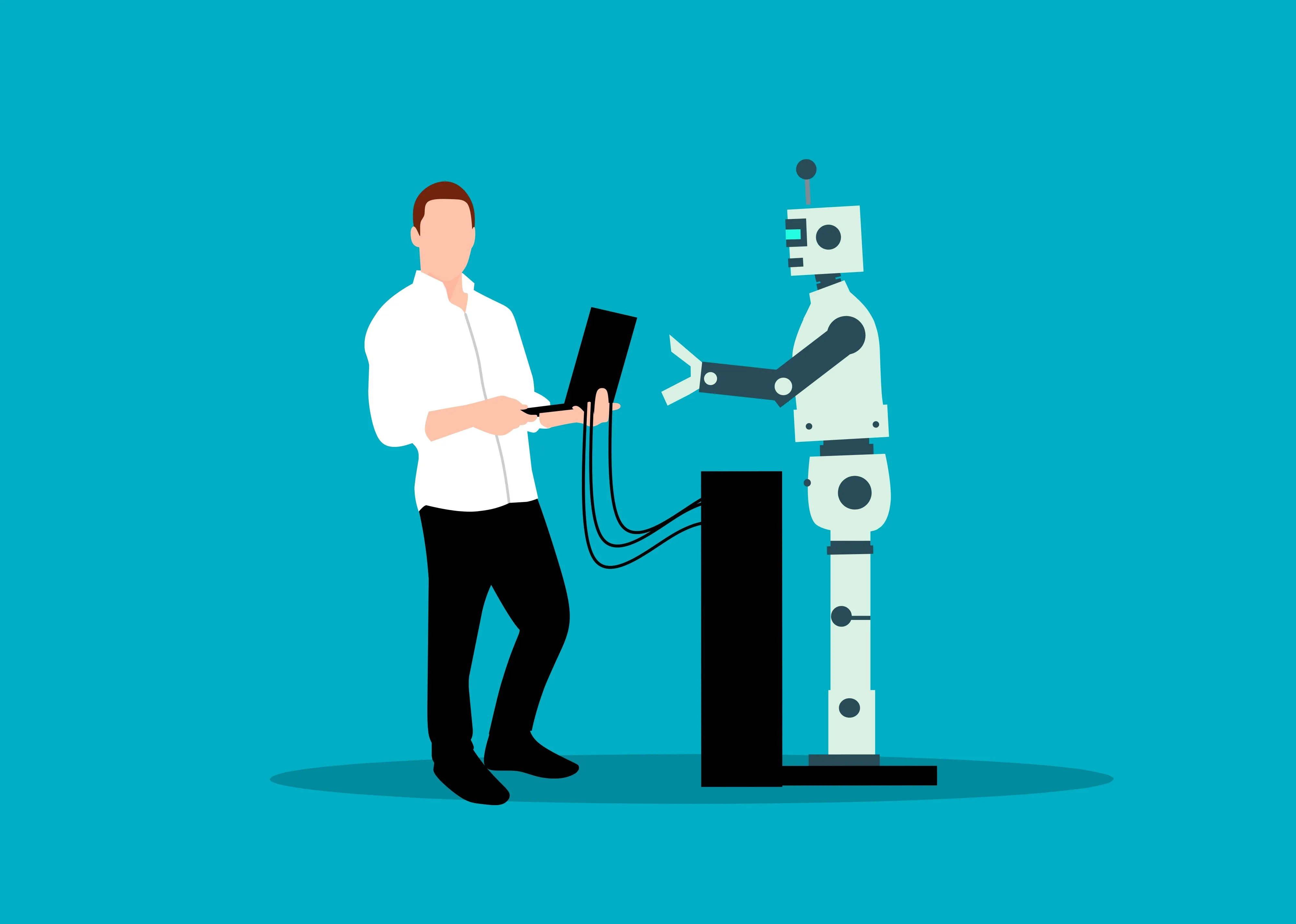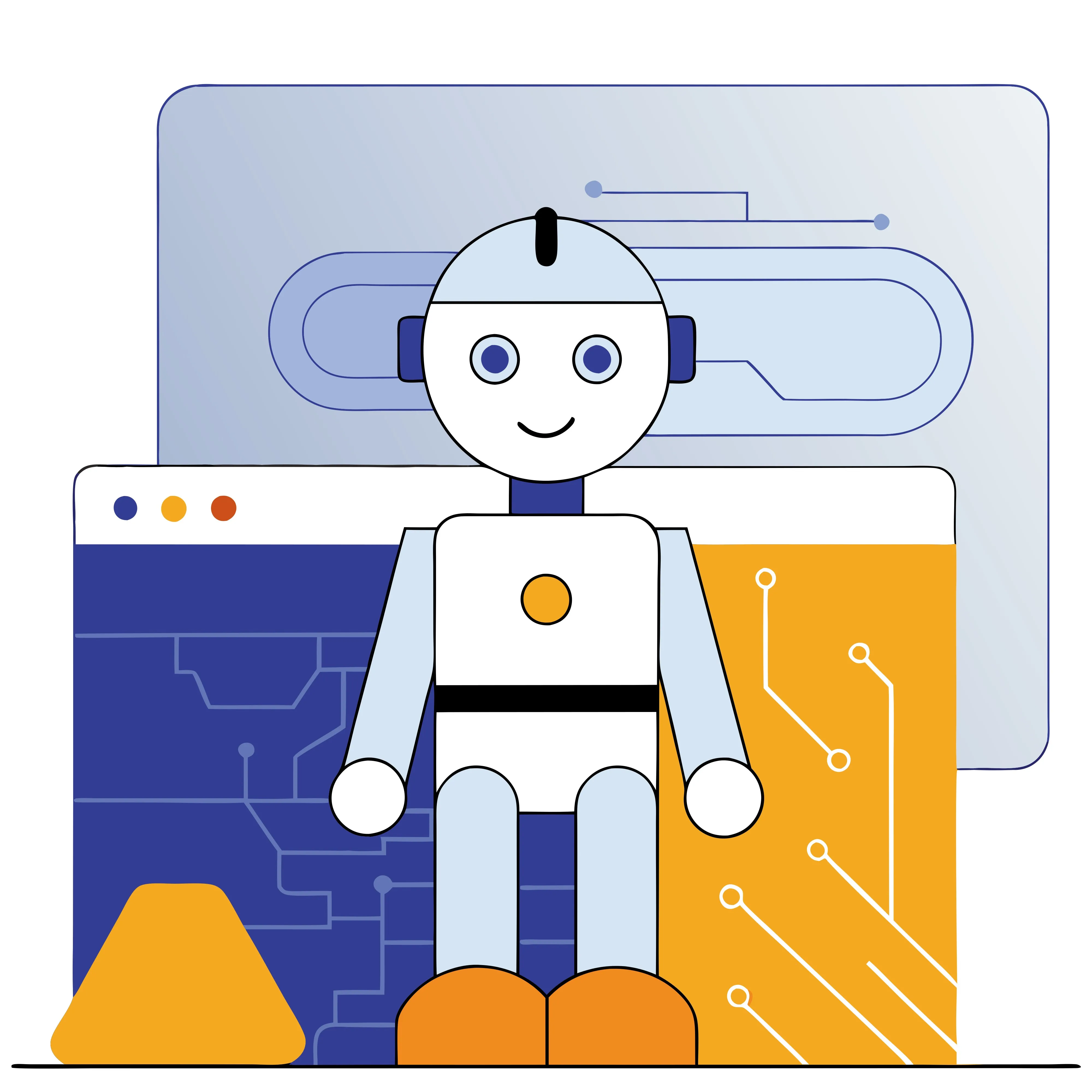Enterprise Resource Planning (ERP) systems have long been the backbone of successful businesses, helping them manage resources, streamline operations, and drive growth. NUSAker, a leading company in innovative business solutions, is now harnessing the power of AI to transform how businesses operate with AI-driven ERP systems.

Curious about what makes AI-driven ERP the future of business? Stick around, and by the end of this post, you'll have a clear understanding of how these intelligent systems are reshaping operations, how NUSAker is leading this evolution, and why your business should be paying attention.
What Are AI-Driven ERP Systems?
Let's start with the basics. Traditional ERP systems focus on integration, centralizing data from various business functions like finance, HR, and logistics into one cohesive system. While efficient, traditional systems often lack advanced analytics, predictive capabilities, and the ability to adapt dynamically.
Enter AI-driven ERP systems. These next-gen platforms combine ERP systems' foundational functions with artificial intelligence capabilities like machine learning (ML), natural language processing (NLP), and predictive analysis. The result? A system that doesn’t just manage your data but learns from it to optimize processes, anticipate trends, and offer actionable insights proactively.
Or, as we like to say, an ERP system with brains.
Why AI-Driven ERPs Are the Future of Business
Implementing AI in an ERP system is about giving businesses the ability to adapt and thrive in a digital-first world. Here are some key reasons they’re seen as the future of resource planning and management.
1. Smarter Decision-Making
AI-driven ERPs aren’t just databases; they’re advisors. These systems analyze real-time data and historical trends, providing recommendations that help you make informed decisions. For example, they can forecast demand spikes so your supply chain never falls behind or suggest reallocating resources to optimize operations.
Imagine having a personal business consultant working 24/7 to deliver insights you didn’t even know you needed.

2. Enhanced Time Efficiency
Automating mundane tasks is AI’s forte. AI-driven ERP systems reduce the time spent on repetitive tasks, like data entry or inventory management, giving your team more freedom to focus on strategies and creative problem-solving.
NUSAker’s AI-enhanced ERP, for example, uses advanced automation engines to eliminate manual bottlenecks, ensuring no human hours are wasted.
3. Predictive Analytics for Proactive Operations
What if your system could predict hiccups long before they arise? AI-driven systems use data to forecast potential disruptions, customer demand patterns, or workflow inefficiencies. Predictive analytics allows businesses to act preemptively, ensuring smoother operations and fewer surprises.
4. Improved Customer Engagement
With machine learning, AI-driven ERPs can handle customer interactions more effectively. They can analyze behavior patterns and preferences, personalizing experiences to increase customer satisfaction and loyalty.
For businesses using NUSAker’s AI ERP tools, this enhanced customer understanding often translates to strengthened brand loyalty and improved client relationships.
5. Seamless Integration of IoT
The Internet of Things (IoT) is already enabling equipment, devices, and products to communicate with one another. AI ERP systems amplify this by processing IoT data and integrating it seamlessly across business functions.
Imagine, for example, your IoT-enabled inventory system automatically notifying your procurement team when stock is low and your finance team about the cost implications. No delays. No disruptions. Just flawless coordination.
NUSAker's AI-Driven ERP Solutions
NUSAker stands out from competitors because of its innovative approach to AI-driven ERP. With its expertise at the intersection of AI and business management, the company creates tailor-made solutions that combine cutting-edge technology with your unique organizational needs.
Unified Experience Across Departments
Traditional ERP systems can silo teams, leaving HR using one module and finance using another. NUSAker’s systems prioritize integration and cross-departmental collaboration so that everyone has access to real-time data, no matter their function.
Advanced Automation
NUSAker's AI automates 80% of manual, time-consuming workflows. It handles everything from sending out financial predictions for Q2 to scheduling maintenance checks on machinery.
Agile Customization
Every business is unique, which is why customization is pivotal. NUSAker ensures its AI ERP systems are agile and can adapt to evolving business models, workflows, and industry standards.
Elegant Simplicity
Despite its powerful capabilities, NUSAker’s AI ERP platform boasts an intuitive, user-friendly design. Forget a steep learning curve; your team will be mastering it in no time.
Real-Life Applications of AI-Driven ERPs
To give you a clearer picture, here are a few real-world scenarios where AI-driven ERP systems deliver exceptional value.
Use Case 1: Data-Driven Supply Chain Management
Company A, a fast-moving consumer goods manufacturer, integrated NUSAker’s AI ERP to transition from reactive supply chain management to predictive and data-driven planning. AI insights helped cut inventory costs by 30%, while real-time monitoring reduced delays across distribution chains by 20%.

Use Case 2: Personalized Customer Experiences for Retail
Company B, an online retailer, leveraged AI in its ERP to personalize customer outreach. The system grouped customers based on buying patterns, creating hyper-specific campaigns. Email open rates increased by 25%, while customer lifetime value spiked by 40%.
Use Case 3: Efficient Talent Management
Company C, a medium-sized IT firm, struggled with high employee churn. NUSAker’s AI-powered HR module analyzed patterns behind resignations and suggested engagement strategies for at-risk employees. Within six months, attrition dropped by 18%.
Recommended for You: Small Business Website Design Services | Explore now.
How to Start Adopting AI-Driven ERPs
If your organization is sold on the benefits of AI in ERP systems but unsure where to begin, consider these steps.
1. Identify Key Objectives
Pin down the pain points you want AI to resolve, whether it’s inventory management, financial forecasting, or customer acquisition.
2. Choose a Proven Provider
Partner with experts who understand AI capabilities and tailor solutions to your business. (Hint: NUSAker has an industry-leading reputation.)
3. Employee Training & Adoption
Train employees to use the new ERP intelligently to fully leverage its features. The better your team understands the system, the higher the ROI.
4. Start Small, Then Scale
Begin by implementing AI in one department or function. Once you’ve established a successful use case, extend it across the organization.
Key Benefits of AI-Powered ERP for Modern Enterprises
Beyond the specific case of Nusaker, any organization stands to gain significantly from AI-enhanced ERP systems. These include:
● Scalability: Systems can evolve with business needs, adding new modules or functionalities without requiring massive overhauls.
● Improved User Experience: User-friendly interfaces and AI-guided workflows minimize training requirements and reduce user errors.
● Predictive Maintenance: In manufacturing sectors, AI monitors equipment health and predicts failures, reducing downtime and maintenance costs.
● Regulatory Compliance: AI ensures that data handling complies with GDPR, HIPAA, and other global standards, minimizing legal risks.
Challenges in Implementing AI-Driven ERP Systems
While the benefits are vast, implementation is not without its challenges:
● High Initial Investment: Advanced AI-ERP platforms require significant upfront costs for licensing, training, and infrastructure upgrades.
● Data Privacy Concerns: AI systems require access to vast amounts of data, necessitating robust cybersecurity frameworks.
● Change Management: Organizational culture must evolve alongside technology. Employee resistance and lack of technical skills can hinder adoption.
Nusaker has tackled these hurdles through phased rollouts, strategic vendor partnerships, and continuous employee training programs.
The Road Ahead: AI and ERP in the Next Decade
As AI technologies mature, the capabilities of ERP systems will continue to expand. We can anticipate:
● Hyper-Personalization: ERP systems tailoring dashboards and recommendations to individual users.
● Decentralized Architectures: Integration with blockchain for secure, transparent transactions.
● IoT Integration: Real-time data from devices feeding directly into ERP for faster decision-making.
● Augmented Intelligence: Human decisions amplified—not replaced—by AI recommendations.
Nusaker is actively investing in these innovations, aiming to remain a pioneer in intelligent enterprise resource management.
Frequently Asked Questions (FAQ)
1. What is an AI-driven ERP system?
An AI-driven ERP system integrates artificial intelligence technologies such as machine learning, predictive analytics, and automation into traditional ERP platforms. This enhances decision-making, streamlines operations, and provides real-time insights.
2. How does AI improve ERP performance?
AI improves ERP performance by automating repetitive tasks, providing accurate forecasting, identifying patterns in data, and enabling faster, data-driven decisions across various departments like finance, HR, and supply chain.
3. Why is AI important for the future of ERP?
AI transforms ERP systems into intelligent platforms that can predict business trends, reduce operational costs, and improve customer experience, making organizations more agile and competitive in a digital-first world.
4. What benefits has Nusaker gained from AI-driven ERP systems?
Nusaker has improved its supply chain management, financial forecasting, customer engagement, and HR processes by adopting AI-driven ERP, enabling greater efficiency, scalability, and proactive decision-making.
5. Are AI-ERP systems suitable for small and medium-sized businesses?
Yes, modern AI-ERP solutions are increasingly scalable and affordable, making them accessible to SMEs. Cloud-based AI-ERP platforms allow smaller businesses to compete with larger enterprises through intelligent automation and insights.
6. What are the challenges in implementing AI in ERP systems?
Challenges include high initial investment, data security concerns, integration complexities, and organizational resistance to change. However, these can be overcome with proper planning and phased implementation.
7. How can I choose the right AI-ERP system for my business?
Look for platforms with built-in machine learning, real-time analytics, automation features, modular scalability, cloud support, and user-friendly interfaces. Also, consider vendor support and industry-specific customization.
Conclusion
The integration of AI into ERP systems marks a monumental leap in enterprise efficiency, agility, and intelligence. For industry leaders like Nusaker, this transformation is already underway—setting new benchmarks in how businesses operate, compete, and thrive in a digital-first world. Companies that follow suit will not just keep up; they will lead.


